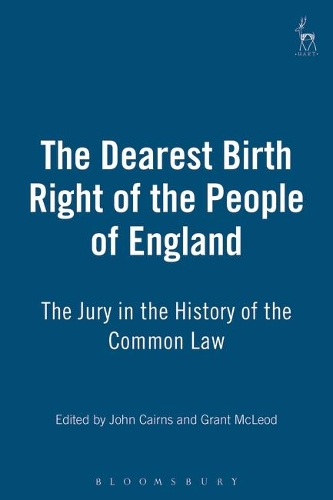
The Dearest Birth Right of the People of England: The Jury in the History of the Common Law
(Hardback)
Publishing Details
The Dearest Birth Right of the People of England: The Jury in the History of the Common Law
By (Author) John Cairns
Edited by Grant Mcleod
Bloomsbury Publishing PLC
Hart Publishing
12th August 2002
United Kingdom
Classifications
Tertiary Education
Non Fiction
Legal skills: advocacy
History of ideas
European history
347.41052
Physical Properties
Hardback
272
Width 156mm, Height 234mm, Spine 21mm
Description
This study examines the criminal and civil jury in England in the 19th century. It also provides a reassessment of standard issues such as jury lenity or equity, while raising questions about orthodoxies concerning the relationship of the jury to the development of laws of evidence. Moreover, this reassessment of the jury in 19th-century England rejects the thesis that juries were squeezed out by judges in favour of market principles. The text provides a rounded picture of the jury as an institution, considering it in comparison to other modes of fact-finding, its development in both civil and criminal cases, and the significance, both practical and ideological, of its transplantation to North America and Scotland, while opening up new areas of investigation and research.
Reviews
This volume of eleven essays is an indispensable addition to the growing collection of work on the history of the jury. Spanning a thousand years of jury development, the book's chapters offer an array of new insights and discoveries by leading scholars of jury history. -- Nancy J. King * Canadian Journal of Law and Society *
Author Bio
John W. Cairns is Professor of Legal History at the University of Edinburgh. Grant McLeod is a former Lecturer in Law at the University of Edinburgh.
